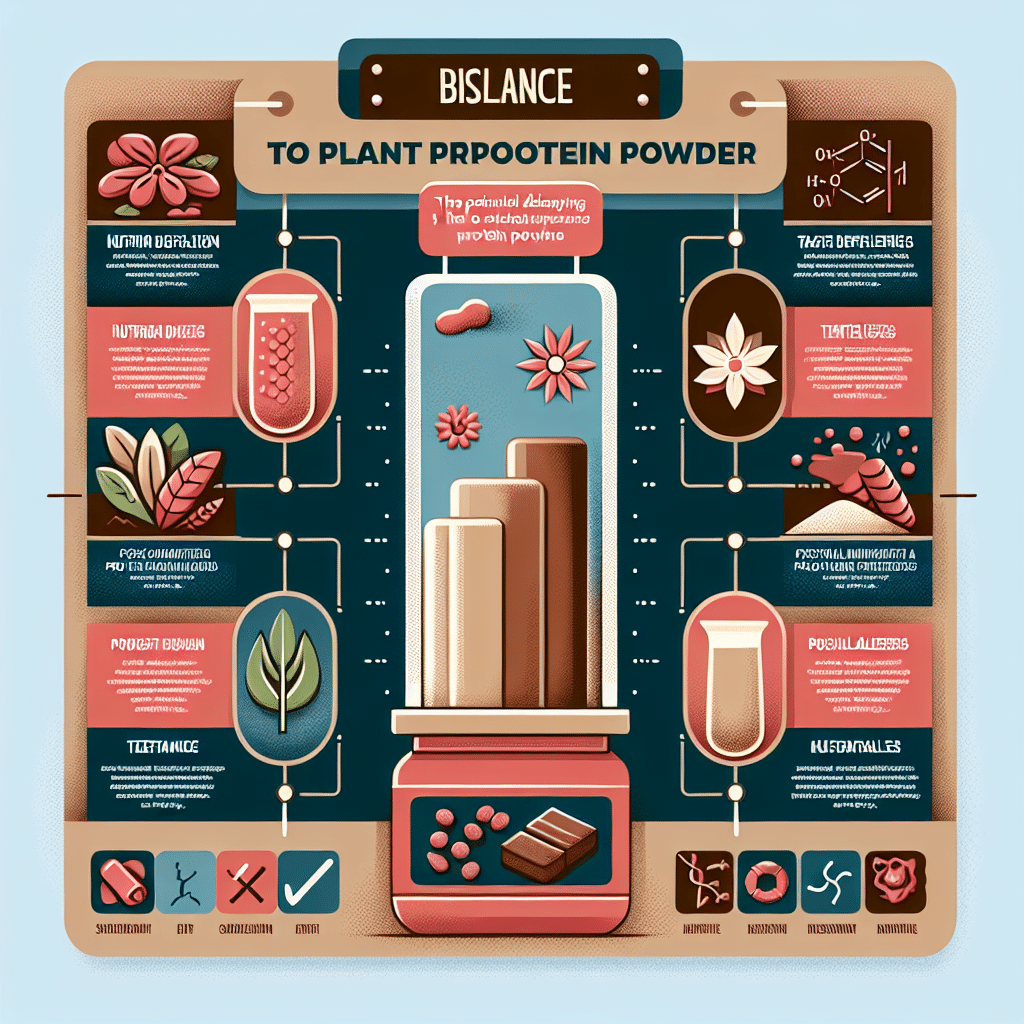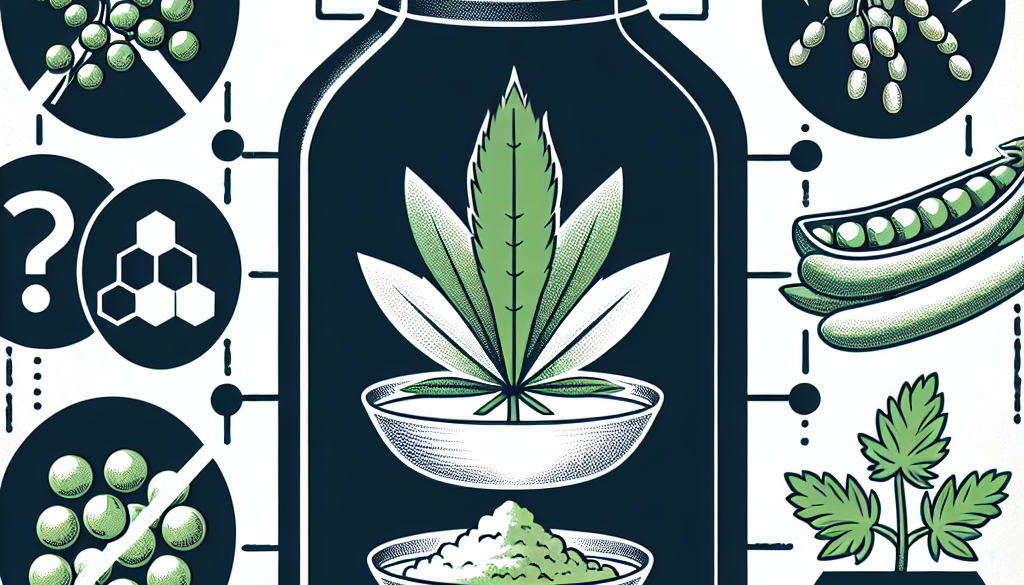What Are The Downsides To Plant Protein Powder? Deep dive
Table of Contents
- Plant Protein Powder Downsides: A Comprehensive Analysis
- 1. Incomplete Amino Acid Profiles
- 2. Digestibility and Absorption Issues
- 3. Heavy Metal Contamination
- 4. Taste and Texture Challenges
- 5. Nutrient Deficiencies
- 6. Allergenic Potential
- Conclusion: Weighing the Pros and Cons
- Discover ETprotein’s High-Quality Plant Proteins
Plant Protein Powder Downsides: A Comprehensive Analysis

Plant-based diets have gained popularity in recent years, with many people turning to plant protein powders as a convenient source of nutrition. While these powders offer a range of benefits, including being suitable for vegans and those with dairy allergies, they are not without their downsides. In this article, we will explore the potential drawbacks of plant protein powders, providing valuable insights for consumers considering these products.
1. Incomplete Amino Acid Profiles
One of the primary concerns with plant protein powders is their amino acid composition. Unlike animal proteins, which are complete proteins containing all essential amino acids, some plant proteins are incomplete, lacking one or more essential amino acids.
- For example, rice protein is low in lysine, while pea protein is low in methionine and cysteine.
- This can be particularly problematic for individuals relying solely on a single type of plant protein for their protein needs.
To combat this, many plant protein powders blend different protein sources to create a more complete amino acid profile. However, consumers must be vigilant in checking labels to ensure they are getting a balanced blend.
2. Digestibility and Absorption Issues
Another downside to plant protein powders is their digestibility. Plant proteins often contain antinutrients, such as phytates and tannins, which can inhibit the absorption of minerals and decrease protein digestibility.
- These antinutrients can be reduced through processing methods like fermentation, sprouting, and soaking, but not all plant protein powders undergo these treatments.
- Additionally, some individuals may experience gastrointestinal discomfort, such as bloating and gas, when consuming certain plant proteins.
It’s important for consumers to consider their digestive health and choose a plant protein powder that has been processed to reduce antinutrients and enhance digestibility.
3. Heavy Metal Contamination
Plant protein powders, particularly those derived from soil-grown plants like rice and peas, can sometimes contain heavy metals such as lead, arsenic, cadmium, and mercury. These contaminants can accumulate in the body over time and pose health risks.
- Heavy metal contamination is often a result of polluted soil and water sources.
- Organic and thoroughly tested plant protein powders may have lower levels of heavy metals, but it’s crucial for consumers to research brands and look for third-party testing to ensure safety.
Choosing reputable brands that regularly test their products for heavy metals is essential for minimizing this risk.
4. Taste and Texture Challenges
While taste is subjective, many consumers find that plant protein powders have a grittier texture and a more earthy flavor compared to whey protein powders. This can be off-putting for some individuals and may limit the appeal of plant-based protein supplements.
- Flavoring and sweeteners are often added to improve the taste, but these additives may not be suitable for everyone, especially those looking to avoid artificial ingredients or excess sugars.
- Consumers may need to experiment with different brands and flavors to find a plant protein powder that meets their taste preferences.
It’s worth noting that advancements in processing techniques are continually improving the taste and texture of plant protein powders.
5. Nutrient Deficiencies
While plant protein powders can be a good source of protein, they may lack other nutrients found in whole foods or animal-based proteins. For instance, they might be low in vitamins B12 and D, omega-3 fatty acids, and certain minerals like iron and calcium.
- Individuals using plant protein powders as a significant source of their dietary protein may need to supplement these nutrients separately or ensure they are getting them from other dietary sources.
- It’s important for consumers to consider the nutritional completeness of their diet as a whole when incorporating plant protein powders.
Ensuring a balanced and varied diet is key to avoiding nutrient deficiencies when relying on plant protein powders.
6. Allergenic Potential
Although plant protein powders are often marketed as hypoallergenic alternatives to dairy-based proteins, some individuals may still experience allergic reactions to certain plant proteins.
- Soy and peanut proteins, in particular, are common allergens and can cause adverse reactions in sensitive individuals.
- Consumers with known allergies should carefully read ingredient labels to avoid plant protein powders containing allergenic substances.
Choosing hypoallergenic plant protein sources, such as pea or rice protein, may be a safer option for those with allergies.
Conclusion: Weighing the Pros and Cons
Plant protein powders offer a valuable alternative to animal-based proteins, especially for those following a vegan or vegetarian diet. However, it’s important to be aware of their potential downsides, including incomplete amino acid profiles, digestibility issues, heavy metal contamination, taste and texture challenges, nutrient deficiencies, and allergenic potential. By understanding these drawbacks, consumers can make informed decisions and select the best plant protein powder to meet their nutritional needs and preferences.
Discover ETprotein’s High-Quality Plant Proteins
If you’re looking for a reliable source of plant protein powders, consider ETprotein’s range of products. ETprotein specializes in organic bulk vegan proteins that are non-GMO, allergen-free, and feature a neutral taste. Their offerings include a variety of plant-based proteins such as rice, pea, watermelon seed, pumpkin seed, and sunflower seed proteins, ensuring you have access to high-quality supplements that cater to your dietary requirements.
With a commitment to purity and quality, ETprotein’s products undergo rigorous testing to ensure they meet the highest standards. Whether you’re involved in the nutraceutical, pharmaceutical, or food and beverage industry, ETprotein provides comprehensive protein solutions to support your health and wellness goals.
About ETprotein: ETprotein, a reputable protein and L-(+)-Ergothioneine (EGT) Chinese factory manufacturer and supplier, is renowned for producing, stocking, exporting, and delivering the highest quality organic bulk vegan proteins and L-(+)-Ergothioneine. They include Organic rice protein, clear rice protein, pea protein, clear pea protein, watermelon seed protein, pumpkin seed protein, sunflower seed protein, mung bean protein, peanut protein, and L-(+)-Ergothioneine EGT Pharmaceutical grade, L-(+)-Ergothioneine EGT food grade, L-(+)-Ergothioneine EGT cosmetic grade, L-(+)-Ergothioneine EGT reference grade and L-(+)-Ergothioneine EGT standard. Their offerings, characterized by a neutral taste, non-GMO, allergen-free attributes, with L-(+)-Ergothioneine purity over 98%, 99%, cater to a diverse range of industries. They serve nutraceutical, pharmaceutical, cosmeceutical, veterinary, as well as food and beverage finished product distributors, traders, and manufacturers across Europe, USA, Canada, Australia, Thailand, Japan, Korea, Brazil, and Chile, among others. ETprotein specialization includes exporting and delivering tailor-made protein powder and finished nutritional supplements. Their extensive product range covers sectors like Food and Beverage, Sports Nutrition, Weight Management, Dietary Supplements, Health and Wellness Products, and Infant Formula, ensuring comprehensive solutions to meet all your protein needs. As a trusted company by leading global food and beverage brands and Fortune 500 companies, ETprotein reinforces China’s reputation in the global arena. For more information or to sample their products, please contact them and email sales(at)ETprotein.com today.














